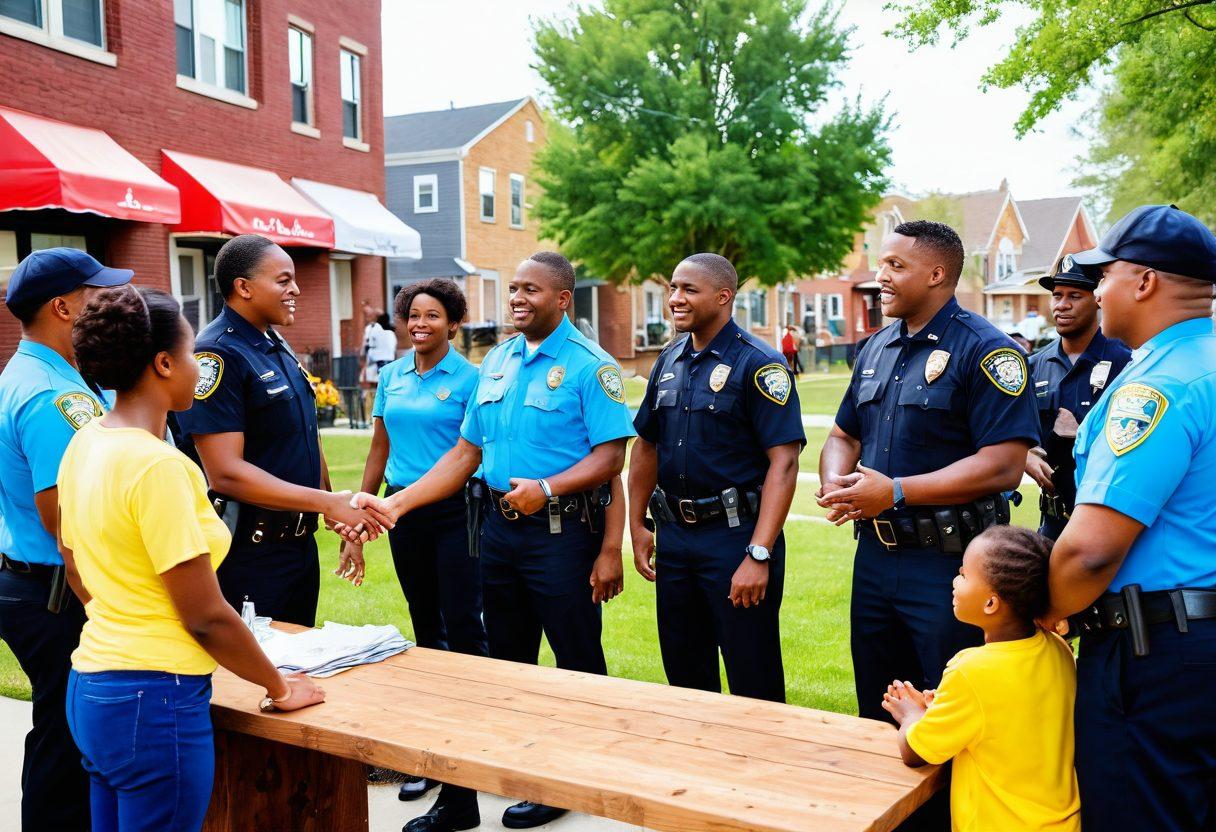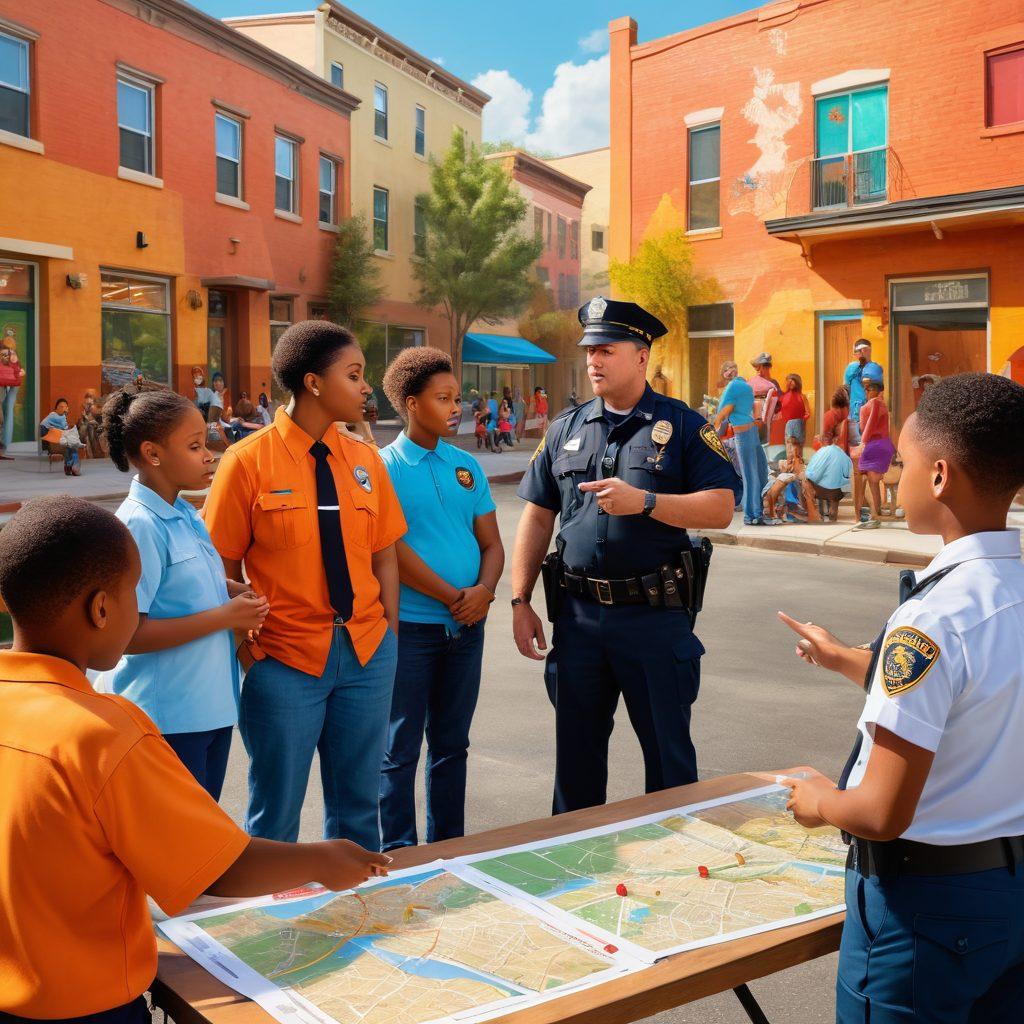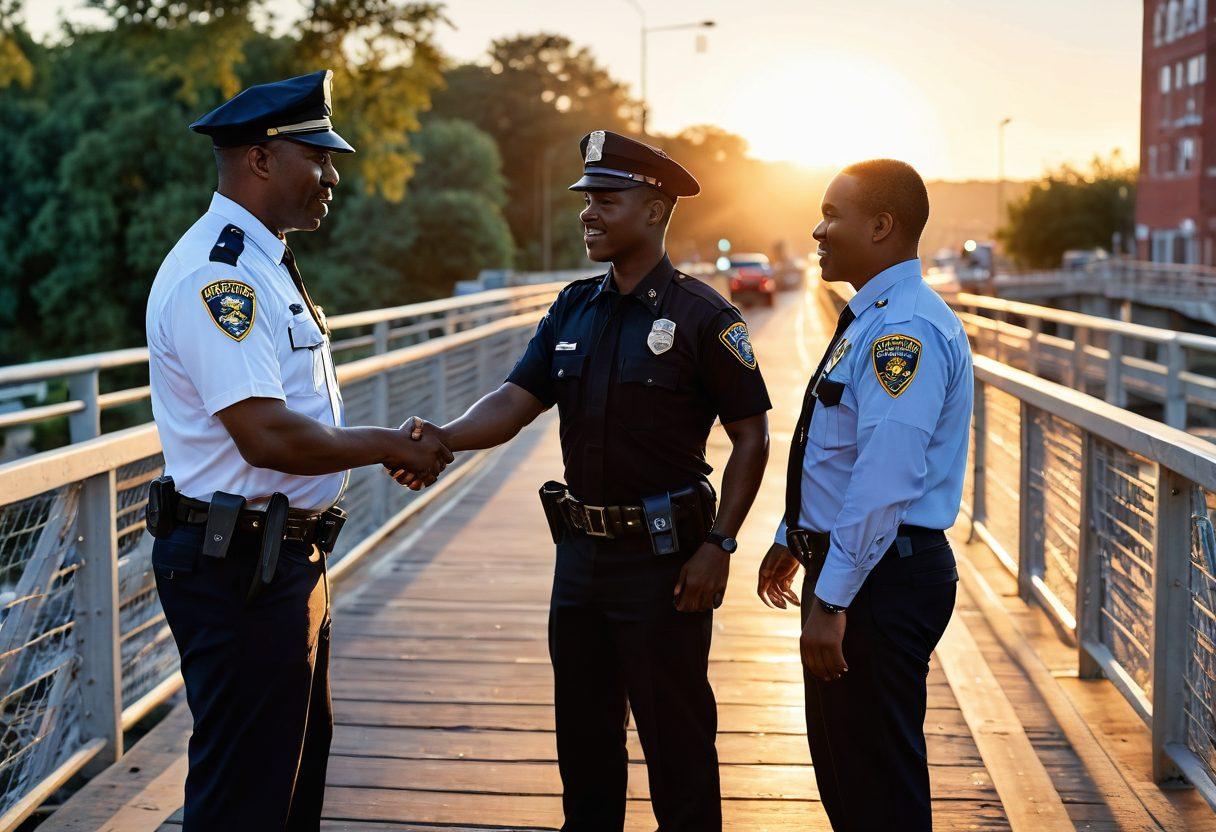Building Trust: The Power of Community Engagement in National Police Services
In a world where trust seems increasingly hard to come by, the relationship between communities and law enforcement agencies becomes paramount. How can national police services effectively foster trust and enhance public safety? The answer lies in community engagement—developing partnerships that go beyond traditional roles. By leveraging community policing strategies, national police can weave a fabric of cooperation and support, creating environments where citizens feel safe and valued. The mantra 'safety in numbers' becomes more than just a saying; it transforms into a reality when police services unite with the very communities they serve.
Imagine a local police officer who becomes more than just an enforcer of the law. This officer is seen as a friend, a protector, and a pillar of the community. When law enforcement takes proactive steps to connect with residents, it cultivates an atmosphere of trust and reassurance. Programs focused on crime prevention, such as neighborhood watch initiatives and regular safety workshops, deepen ties between the police and the community. Citizens, knowing their local police genuinely care, are more likely to support police outreach efforts, report suspicious activities, and engage in positive policing practices.
'A community that works together thrives together.' This adage perfectly encapsulates the essence of community engagement in national police services. When officers partner with community members, the results can be transformational. Local police become advocates for the happiness and well-being of their neighborhoods, facilitating events that promote unity and encourage public involvement. By emphasizing shared goals, communities can rally around safety initiatives, enhancing overall security and trust in police. This participative approach makes individuals feel empowered, leading to a safer environment for everyone.
But, why is trust in police so essential? Trust is the foundation of effective law enforcement. When community members believe in their national police and view them as allies rather than adversaries, it leads to improved cooperation and communication. Vital issues such as crime reporting become streamlined, as citizens feel they have a direct impact on the safety of their surroundings. Understanding that their concerns are heard and valued can dramatically shift the perception of law enforcement, prompting a shift from fear to partnership. Imagine a world where we all work hand in hand with our security forces for a better, more harmonious community.
To sum it up, empowering communities through national police services is an ongoing journey, but an incredibly rewarding one. As police agencies continue to innovate ways to engage and serve their communities, they not only enhance public safety but also lay the groundwork for lasting trust. By investing in a proactive approach—prioritizing communication, safety initiatives, and genuine partnerships—we can usher in an era of superior policing that benefits everyone. So, what role will you play in building this essential trust within your own community? Remember, community engagement is not just a duty; it's a shared responsibility.
The Role of Community Engagement in Enhancing Public Safety and Crime Prevention
Community engagement is often touted as the cornerstone of effective law enforcement. Imagine a different world where the police and citizens forge a resolute partnership, standing shoulder to shoulder to tackle crime and bolster public safety. This vision is more than just aspirational; it embodies community policing—a concept that bridges the gap between security forces and the very communities they serve. The question we should ask ourselves is: how can citizen support turn the tide against crime and foster trust in police services?
In a world where crime rates seem to dominate the headlines, the idea of partnering with the community can feel like an uphill battle. Yet, many local police departments are stepping out of the shadows and into the neighborhoods. They are engaging with citizens not only as enforcers of the law but as human beings who care deeply about the happiness and well-being of their community. Through proactive outreach, these officers are not just keeping the peace; they are building a trusting community one conversation at a time. As one police chief said, ‘Trust is the currency in which we deal.’
Think about it: when crime incidents are reported, it’s the voices of the community that matter most. They hold the keys to understanding local dynamics and the roots of crime prevention. Administration of police services is evolving, and with it, the relationship between the police and the public is changing for the better. This isn't merely about enforcing laws — it’s about enhancing public safety through collaborative safety initiatives where citizens become vigilant partners. Can you envision a future where crime rates drop simply because the community felt empowered and engaged?
Moreover, trust is not built overnight. It requires consistent efforts in creating transparency, fostering communication, and inviting community members to partake in crime prevention strategies. Police outreach programs have proven to be game-changers. Whether it's neighborhood watch meetings or public forums discussing pressing issues, these platforms open the door for dialogue. When residents feel listened to and valued, they're more likely to support their local police in maintaining security. This suggests that superior policing can be achieved when the community has a seat at the table—making them integral to all crime prevention efforts.
In summation, community engagement is an essential aspect of modern law enforcement that not only enhances public safety but also creates a culture of positive policing. It transforms police officers into community partners and shifts the narrative from skepticism to trust. Young people observe officers as role models, and the more they interact in a friendly environment, the more trust builds, potentially influencing their perceptions for a lifetime. Can we truly say we’ve achieved crime prevention if we neglect the voices of those living in our communities? The answer lies within our collective commitment to fostering an environment of cooperation and understanding between the police and the people.
Building Bridges: Strengthening Police-Citizen Relationships for a Safer Future
In a world where safety and security are paramount, the role of police services has never been more critical. The relationship between law enforcement and citizens is a delicate dance of trust and support. When that trust falters, it can hinder community efforts in crime prevention and public safety. So, how do we bridge the gap between the police and the people? How can we build trust and strengthen those crucial police-citizen relationships for a safer future? It's all about community engagement. Just think about it: when individuals feel connected to their local police, they are more likely to support safety initiatives and work hand-in-hand towards shared goals.
Imagine a neighborhood block party organized not just for fun, but as an initiative led by the local police. The officers aren’t just there in uniform; they're sharing smiles, engaging in conversations, and learning names. This is what positive policing looks like—officers partnering with the community. The policia nacional understands that relationships built on genuine engagement can transform how citizens view law enforcement. It’s a strategy that enhances the well-being of neighborhoods and promotes happiness, creating a secure and cooperative environment for all. People want to feel safe in their communities, and that starts when the police are seen not just as enforcers, but as partners in security forces.
Think about the last time you felt wary of calling the police. Was it because of a past experience, or perhaps a fear of judgment? This experience is all too common, yet it shouldn't be. Trust in police can be strengthened when officers are seen not just as a government agency, but as real members of the community who care about its welfare. Engaging in avenues like open town halls, social media outreach, and transparency in operations allows local police to break down the barriers of mistrust. How can your community engage in fostering such relationships? What steps can you take, as a citizen, to reach out to your police services? Could starting a neighborhood watch program or scheduling friendly meet-and-greets be the key?
The enchantment of community engagement is rooted in storytelling. Imagine a community member sharing their journey: how a local police officer helped them during a crisis. When stories like these circulate, they help humanize the officer and highlight the essence of superior policing. Police outreach isn’t just about enforcing the law; it’s about understanding the community’s unique challenges and working together on crime prevention initiatives. It encourages citizen support and instills confidence that the police are there for more than just law enforcement—they are advocates for collective well-being.
In conclusion, building bridges between police and citizens is a continuous effort that yields abundant rewards. Together, through genuine engagement and open communication, the benefits of strengthened police-citizen relationships can ripple through communities, creating cultures of safety and trust. When law enforcement demonstrates that they value citizen input and take action on community concerns, everyone wins. Whether you're an officer, a community leader, or a resident, each of you plays a vital role in this transformative journey of partnership. As we look toward a safer future, let's remember: in unity, there is strength, and in trust, there is lasting security. The happiness and well-being of our communities depend on it.


